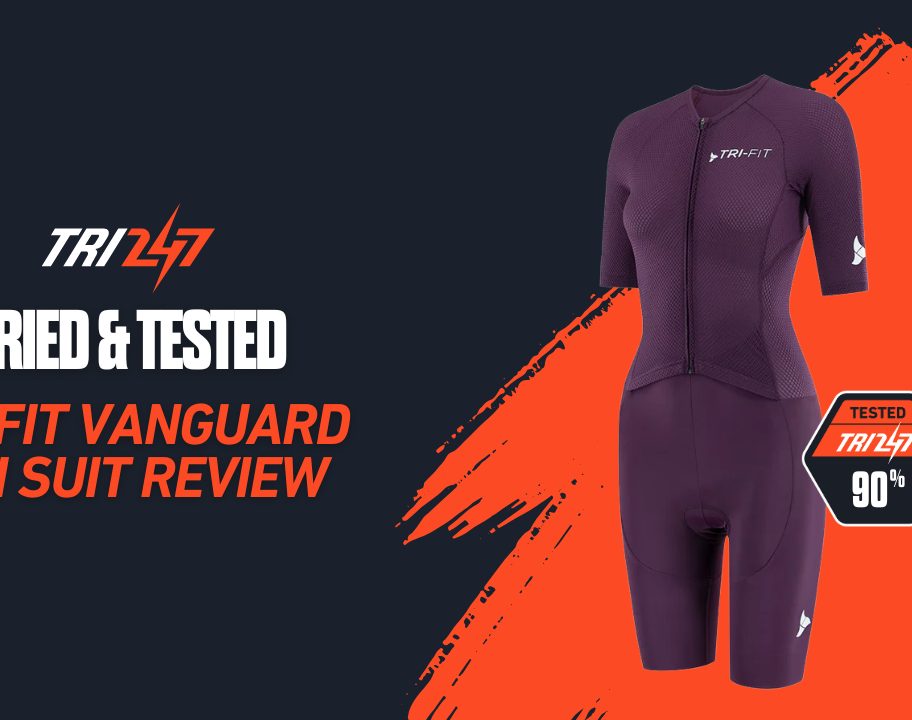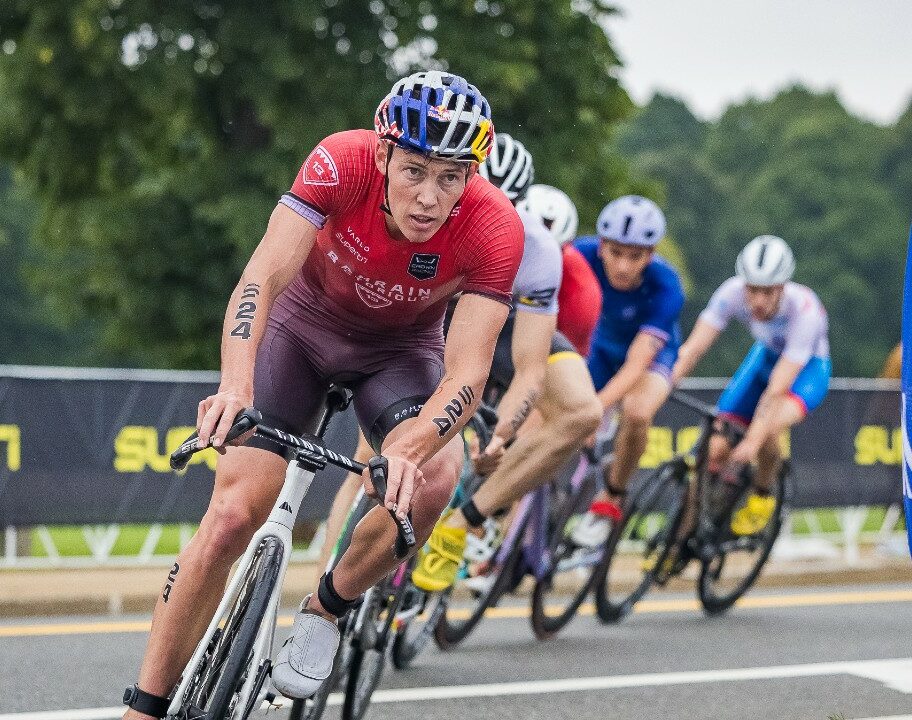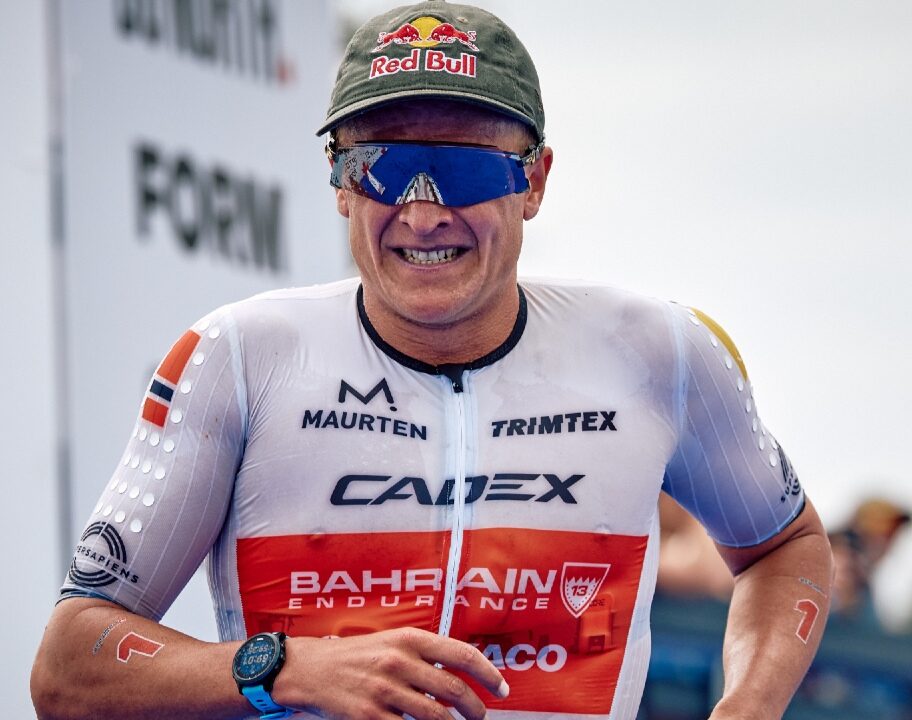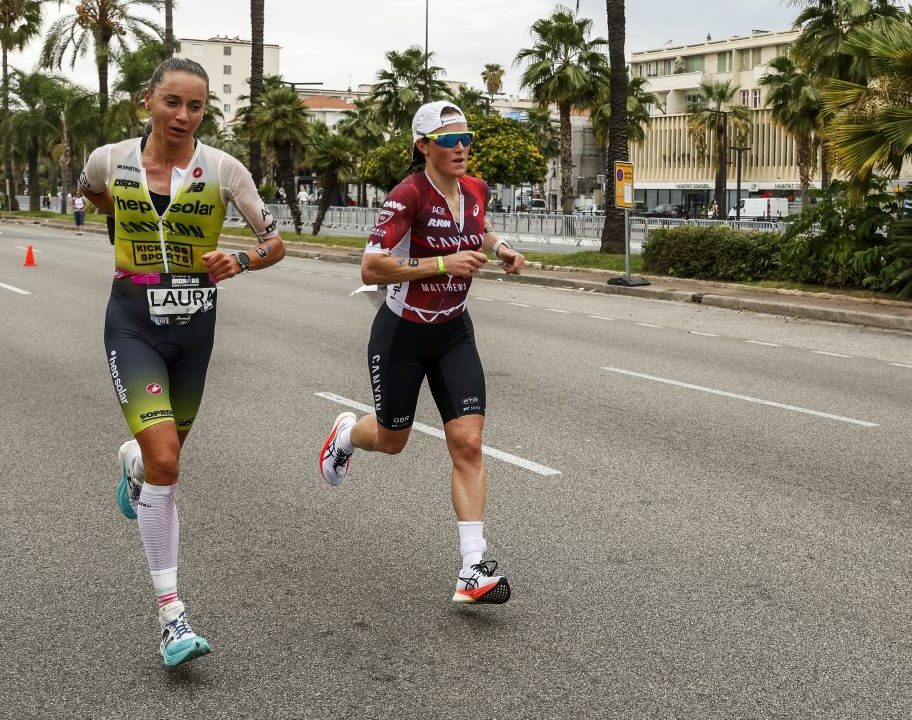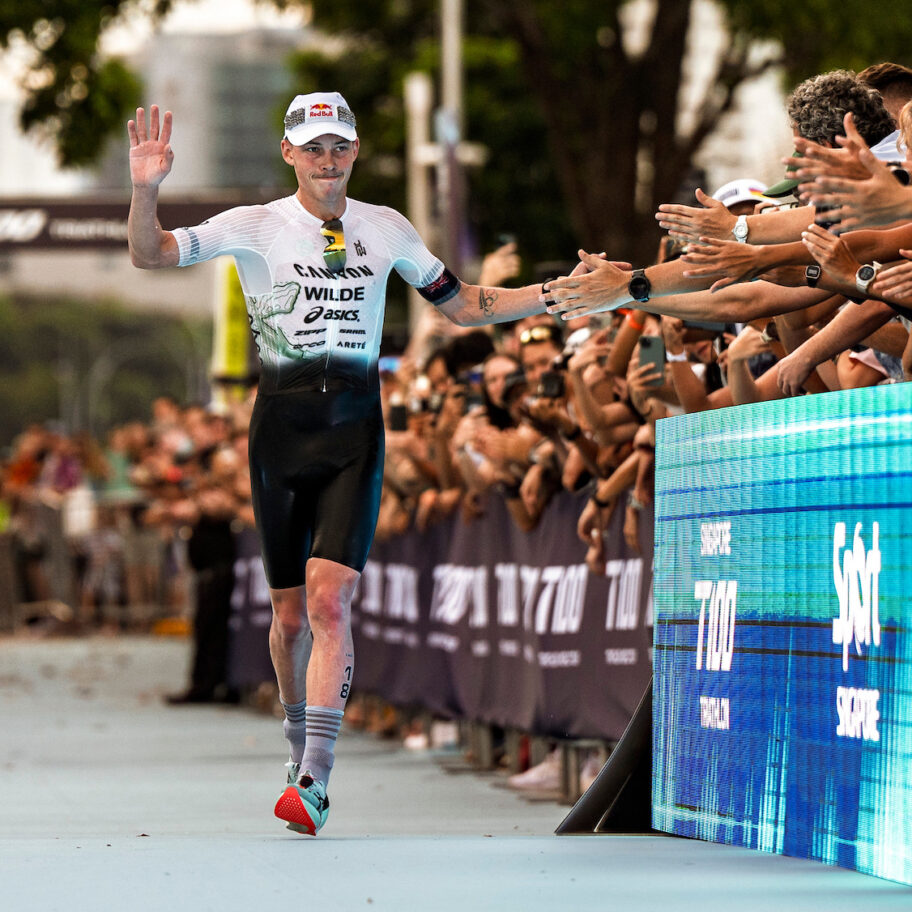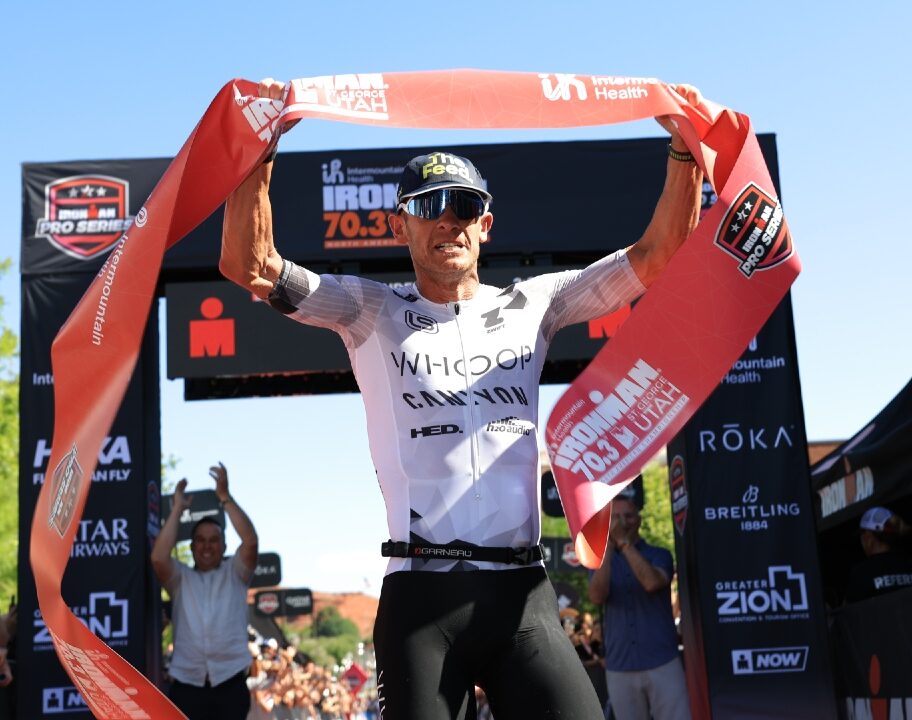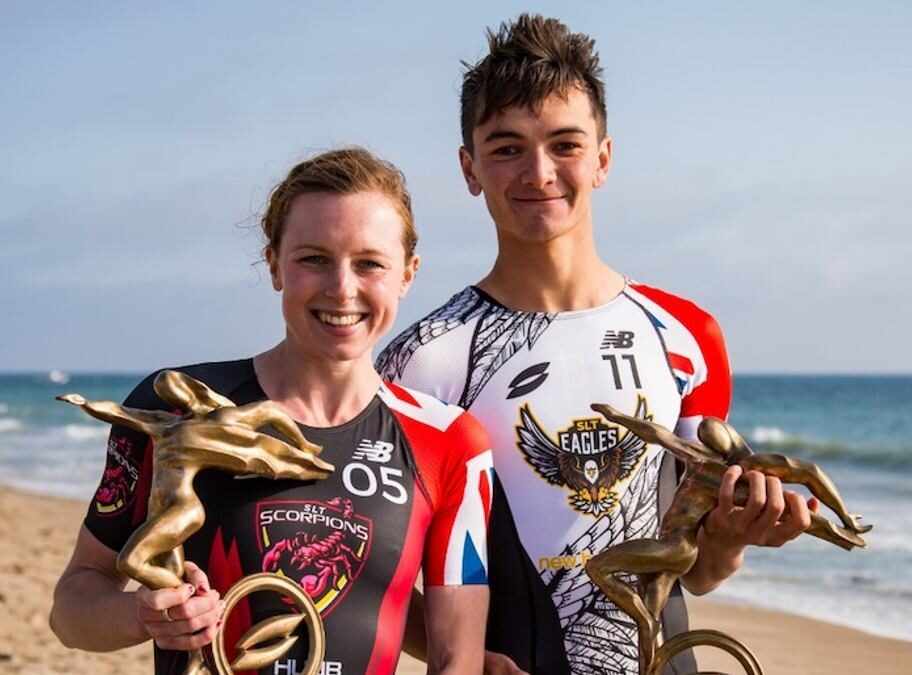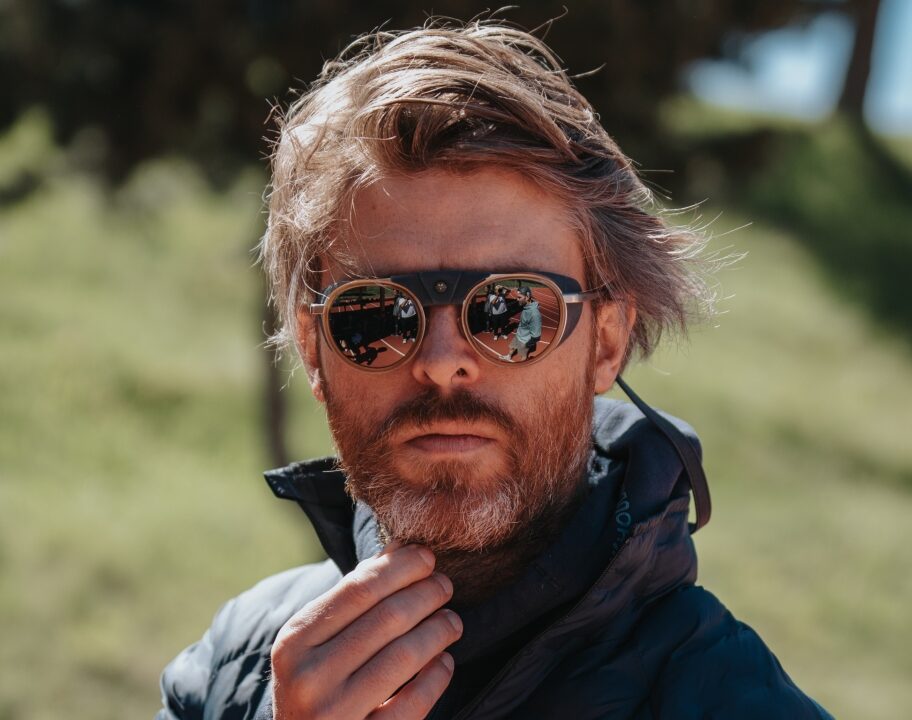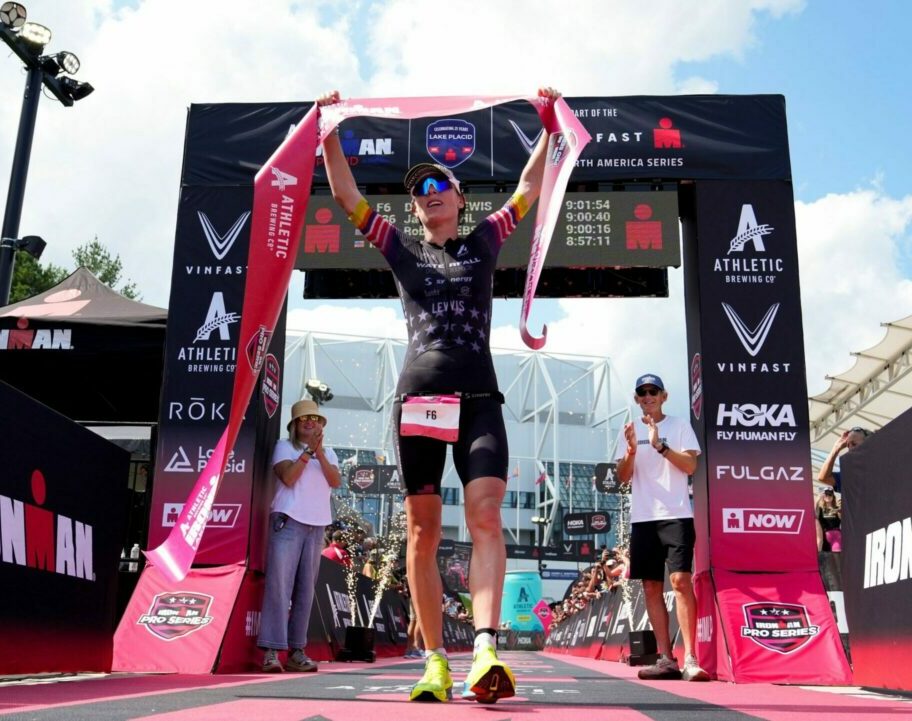Started hanging around with triathletes and feeling a bit like they’re speaking another language at times? Just getting into multisport and wondering what an earth all the various terms and phrases mean? We’ve got you covered! TRI247’s ultimate triathlon jargon buster for beginners will enable you to hold your own in any triathlon conversation.
From knowing your bonk from your brick session. The difference between VO2 max and threshold. To getting to know the nicknames for some of the world’s greatest triathletes. We’ll have you speaking fluent ‘triathlon-ish’ in no time.
Triathlon terms explained – an A-Z swim, bike, run glossary
When you take up triathlon, you’ll soon start coming across all sorts of terms and phrases. Some of them fairly self-explanatory – for example ‘dismount line’. Some of them a little more ambiguous – ‘bonking’ probably doesn’t mean what you think it does! Here’s our A-Z guide to some of the key triathlon phrases you need to know.
Age-group (AG)
You will hear people say “I finished in X place overall, and [an impressive] X in my age-group”. In amateur triathlon the vast majority of races are split into five-year age-groups, for example 20-24, 25-29, 30 -34 and so on. This is one of the attractions of triathlon, that even if you aren’t competing for the overall honours you can compare yourself to people of a similar age. Unless you are racing in the elite category, you will be an age-grouper.
Aero helmet
You must wear a helmet when cycling. When people say ‘aero helmet’ they will mean either (i) a helmet with a profile similar to a classic road lid, which has been stream-lined and aero-optimised, or (ii) a ‘time-trial’ specific helmet which has a longer shape, akin to a teardrop, which is designed to fill the gap between your head, neck, and upper back when cycling in an aggressive position.
Angry Bird
The nickname given to Swiss long-distance specialist Daniela Ryf.
Aquathlon
Normally a swim followed by a run. See our full guide to aquathlon for more details.
Base training
Training at low intensity, designed to improve aerobic capacity and enhance endurance. Base training is relatively longer and slower.
Battle braids
The iconic double braid hairstyle used by Lucy Charles-Barclay when it comes to race day.
‘Big Blu’
The nickname given to individual male triathlon gold medallist at the Tokyo Olympics, Norwegian Kristian Blummenfelt.
Bilateral breathing
Breathing every three strokes when you are swimming i.e. breathing to both sides.
Breakaway (or exploder) zipper
Some wetsuits have a special zipper designed to help you get your wetsuit off as quickly as possible. Unlike a conventional zip which requires you to pull the zip all the way down, a breakaway zipper splits open when you tug at the top and easily separates to help you swiftly pull down your wetsuit.
Brick session
A training session including two disciplines which are carried out one after the other. The classic is a bike session immediately followed by a run. “Run off the bike” is a phrase often used in this context, which means running straight after cycling.
Brownlee brothers
Alistair and Jonny Brownlee, the two British (and global) triathlon superstars from Leeds, UK.
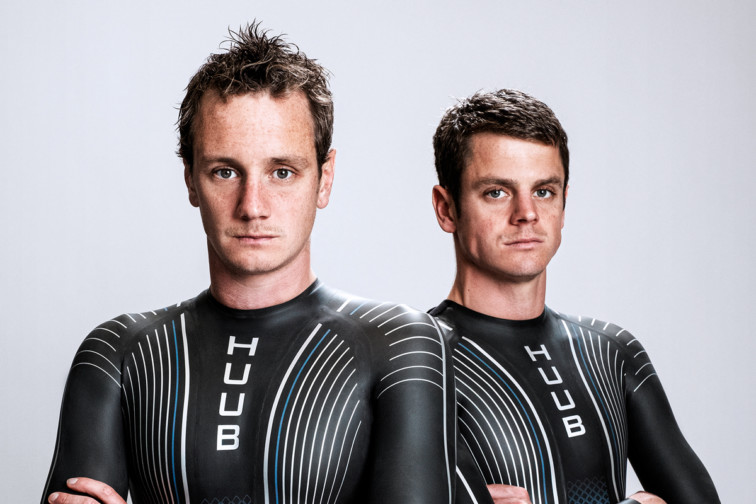
Bonking (to bonk)
Bonking in a triathlon context is not as fun as it might sound. In fact, to bonk is an unpleasant experience where you completely run out of energy during a race or training session. Fuelling is crucial to avoid this – beware, often by the time you realise you are bonking it is already too late to do anything about it.
Cadence
This refers to your leg speed or pedal revolutions, for running and cycling.
Calf guards
These are sleeves that fit tightly around your lower legs, rather than long socks. Depending on their design they might be used for compression and recovery, and/or aerodynamic gains when cycling.
CdA (coefficient of drag area)
This technical term is used when talking about aerodynamics on the bike. CdA stands for coefficient of drag area. A very aero rider on a time trial bike will have a CdA of around or below 0.2. In short, the smaller your CdA, the more aero you are and the better the results you are likely to get.
Clip-on bars
Rather than buying a triathlon or time-trial bike, attaching clip-on aero/tri bars or extensions to your road bike can be a more affordable way to achieve an aero position on the bike leg. Clip-on bars can be short and stubby (they do not protrude beyond the hoods of your road bike) with a bridge joining the bars together to comply with draft-legal race requirements or longer independent extensions.
Clipless pedals
The name is confusing. The term clipless pedals refers to cycling pedals without straps and classic toe-clips. However, they do mean pedals that you clip your bike shoe into and out of. If you are serious about improving your cycling and triathlon performance you will need to start riding with clipless pedals.
Challenge Family
The Challenge Family is global race organiser, offering high-quality international races predominantly over the full and half-distance. The most popular race is Challenge Roth in Germany – which regularly draws huge fields and crowds. Challenge The Championship is their qualification-only world championship race, which usually takes place in Slovakia every May.
Cross triathlon
Triathlon races with an off-road bike leg and often a trail run.
Disc wheel
This could mean one of three things:
- A wheel for a disc brake-equipped bike (which is a wheel with a rotor for braking)
- A rear disc wheel that has no visible spokes and is designed for aerodynamic gain
- Both
Dismount line
The line, often marshalled by a volunteer or race official, by which you must have stepped off your bike before crossing and entering T2. It’s important to make sure you slow down with plenty of time before the dismount line in a triathlon, as crossing it while still on your bike will lead to a disqualification.
DNF
Means not finishing a race and stands for ‘did not finish’. While no one wants a DNF next to their name in the race results, sometimes these things happen. Don’t be disheartened if for whatever reason you can’t finish your event – there’ll always be another race.
DNS
Stands for ‘did not start’ and as you can probably guess, means failing to start a race.
Drafting
To swim or cycle behind, or to the side of, someone reducing your required effort by benefitting from their slipstream or them blocking the wind. Drafting is permitted in nearly all open-water swims. However, when it comes to cycling, triathlons are distinctly split into races which allow drafting and those that do not.
If you’ve watched triathlon in the Olympics, you’ll likely have noted that drafting is allowed in short-course racing – it’s not uncommon to see big groups of riders together on the bike sharing the work. Drafting is not allowed in the bike leg in Ironman races and other middle or long distance triathlons. And often amateur triathlon events, regardless of distance, don’t allow drafting on the bike due to safety concerns of having riders of mixed ability so close together.
Duathlon
Most commonly a run, bike, run. See our full guide to duathlon for more details.
Elite
For many, ‘elite’ is used instead of or along with ‘professional’ (for example, Alex Yee, Georgia Taylor-Brown and co.). However, in reality, ‘elite’ is often far more accurate – as many triathletes who are classed as ‘elite’ do not make their money exclusively from triathlon.
Fartlek
‘Fartlek’ is a Swedish phrase which means ‘speed play’. In triathlon, fartlek is a form of interval training which involves varying paces and efforts, alternating between harder sections and easier recovery sections. Fartlek is predominantly associated with running training, but you can also use it for swimming and cycling. This form of interval training helps to boost your overall fitness and increase your speed.
Flying mount
It sounds simple, but getting onto your bike quickly in a triathlon is quite a skill. It requires a lot of practice. A flying mount involves running with your bike and attempting to seamlessly jump over your saddle and onto your bike. Not easy…
Flora (Duffy)
The individual women’s triathlon gold medallist at the Tokyo Olympics. The first ever Bermudian to win Olympic gold in any event. Flora Duffy has cemented herself as a legend of the sport, and is now turning to the longer 100km middle distance triathlon after enjoying many years of short course success.
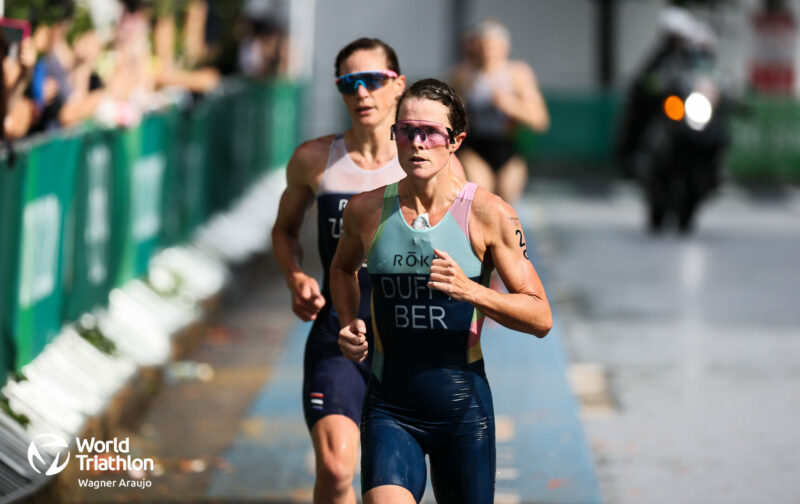
Forefoot strike
To run landing on your forefoot (rather than your mid-foot or heel) – a style popular with elite runners due to its propulsive nature.
Frodo
The nickname given to German triathlete Jan Frodeno. For many, Frodeno is the GOAT of triathlon having won gold at the Beijing 2008 Olympics and then dominating long-course triathlon. Jan Frodeno has now retired from elite triathlon, but is still very much involved with the sport and can often be found in the commentary box.
Front crawl or freestyle
This is the most common swim style used in triathlon (however, you will occasionally see people using other strokes, like breaststroke).
FTP
On the bike this is referred to as functional threshold power – it is the power output you can average for an hour. Power in cycling is measured in ‘watts’ and is simply a way to quantify the amount of force you are pushing through the pedals. You can use FTP as a way to gauge the intensity of a session, and to pace your efforts during a race.
Full distance
Sometimes also referred to as long distance, a full distance triathlon means a race over the iron distance = an Ironman (check out our full guide to triathlon distances).
A race over the full Ironman distance consists of:
- 3.8k swim
- 180k bike
- 42.2k run (full marathon).
GOAT
The greatest of all time. All sports have raging debates about theirs and triathlon is no different.
‘The Grip’
The nickname given to six-time IRONMAN World Champion Mark Allen – the GOAT in the eyes of many experts…
Groupset
This is a cycling term and it means the components on your bike which are involved in braking, changing gear, or running the drive train. This means your brake calipers, brake levers, gear shifters, front and rear mechs (derailleurs), crankset, bottom bracket, chain and cassette (sometimes called block). The main groupset providers are Shimano, SRAM, and Campagnolo.
Half distance
Half-distance means a race over triathlon’s middle distance or 70.3. It consists of:
- 1.9k swim
- 90k bike
- 21k run (half marathon).
HRM
Means a heart rate monitor. Classically this is a sensor which is strapped across your chest. However, depending on the type of HRM, the sensors can be included in a watch or a band around your arm. Heart rate is often used to determine your training zones i.e. the fitness effect of a training session.
Related: Triathlon training zones explained
Interval training
Similar to fartlek training, interval training usually involves completing set intervals for a specific amount of time at a specific pace. You can complete interval training in the pool, on the bike, and in your run sessions. Pool intervals could include 10 x 100m at your max effort pace. And running intervals might be 3 x 10 minutes at your 10km pace.
Ironman
Often used to mean or refer to full iron-distance racing (that is: 3.8k swim; 180k bike; and 42.2k run), Ironman is also a race organiser brand. IRONMAN the brand provides high-quality events internationally, predominantly over the half and full-distance. You will notice triathletes with tattoos of the Ironman M-Dot logo, often on their calf.
Many athletes who take up the dream of finishing a full-distance race do so to hear the famous words ‘You are an Ironman’ as they cross the finish line.
The ‘Iron War’
The epic 1989 IRONMAN World Championship on Kona, Hawaii which saw great rivals Mark Allen and Dave Scott locked together for more than eight hours before Allen finally managed to surge ahead to claim a famous victory.
ITU
Means the International Triathlon Union, the former name of World Triathlon. World Triathlon is the international governing body of triathlon – although it does not govern all forms of triathlon racing (for example, IRONMAN, Challenge Family, and Super League).
Kona
Kona, Hawaii is the iconic location of the IRONMAN World Championships held every year in October. For the majority of triathlon’s history, the World Championship event saw men and women (PROs and age-groupers alike) all compete in Kona on the same day. However in 2022, the racing was split over two separate days. And in 2023, for the first time the IRONMAN World Championship took place in two different locations on two entirely different weekends. The men raced in Nice in September, and the women raced in Kona. The plan going forward is that the World Championship will be hosted by Nice and Kona each year, with men and women rotating between the two locations.
Lactate threshold
Not to be confused with VO2 Max and FTP. Your lactate threshold is the point of exercise or intensity at which your body is creating more lactate in your blood than it is able to remove.
LCB
British triathlete Lucy Charles-Barclay, the 2023 IRONMAN World Champion.
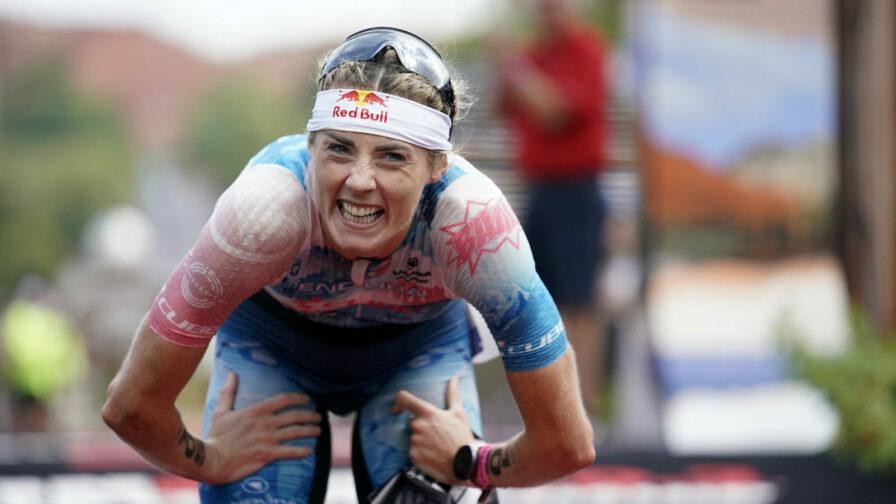
Mandatory foot down
Some races require that during the bike leg, when you are approaching a busy or dangerous junction, you slow down, come to a stop, and put your foot down before proceeding.
Maui
Maui, Hawaii is the location of the annual XTERRA cross triathlon world championships.
Mixed relay
Introduced to great effect at the Tokyo Olympics, with Team GB winning gold. The triathlon mixed relay sees teams of four athletes – two men and two women – each complete a super sprint triathlon as part of a relay. Mixed relay can be one of the most exciting formats to watch.
Mount line
When coming out of the T1 transition, you must not get on your bike until you have passed the mount line.
Negative split
To finish the second half of a race or a training session faster than the first half – i.e. getting progressively faster.
Olympic distance
Also known as the standard distance, this is a race over:
- 1.5k swim
- 40k bike
- 10k run
Open water swim
Essentially any swim which doesn’t take place in a swimming pool. A swim in a lake, river, or the sea (including swims in a harbour).
Overtraining
Simply put, overtraining means training too much without adequate recovery. The result can be sustained fatigue, burn-out and injuries.
Power meter
A power meter is fitted to a bike to record and monitor the rider’s power output. The advent of power meters has revolutionised bike training and racing. There are different types of power meters, which record your power output from different places on the bike – such as: pedal, crank, and rear-wheel hub.
PTO
The Professional Triathletes Organisation. It is in effect a union for non-drafting professional triathletes (predominantly middle and long-distance specialists). In 2024, the PTO launched the T100 World Tour – a series of 100km triathlon events with contracted PRO triathlete’s competing over the course of the year to create a season-long narrative and fight for the overall title. Alongside the elite racing, T100 also introduced mass participation age group events.
PTO World Rankings
The PTO has designed a system with the aim of objectively rating and ranking athletes based on their race performances. Athletes are also given scores for each disciplines. The PTO rankings are a useful tool when assessing who the key contenders in a PRO race might be.
Sweet spot training
This is a cycling term and it refers to efforts which are at circa 88-95% of your FTP or around 75-85% of your maximum heart rate. It can be described as being slightly harder than tempo efforts but not a full gas effort – you’re training in your sweet spot.
Swimrun
As the name suggests, swimrun involves swimming and running. Normally raced in pairs, competitors swim then run, and then swim and run some more multiple times. The biggest swimrun event organisers are Otillo Swimrun and Breca Swimrun. Swimrun events are often ‘adventure’ style events over varied and rugged terrain.
Sighting
This is looking where you are going when you are swimming in open water. For example, gauging where you are in relation to the race route by looking at landmarks on the coastline or trees on the edge of the lake. A really handy skill to have.
Sprint distance
A triathlon raced over the following distance:
- 750m swim
- 20k bike
- 5k run
Super shoes
Running shoes with a carbon plate which have revolutionised running. Nike’s Vaporfly is thought of as the original, but plenty of other running shoe brands now have their own super shoes. The carbon plate significantly increases energy return and forward propulsion, helping athletes to run faster for the same effort.
Super sprint distance
The shortest common triathlon distance, namely:
- 400m swim
- 10k bike
- 2.5k run
Super League Triathlon / supertri
Exciting, short and fast. The made-for-TV series of races includes the best short-course (and occasionally long-course specialists) racers in the world competing over bespoke triathlon formats (the races are not always swim, bike, run!) across the globe. In 2024, Super League rebranded as supertri.
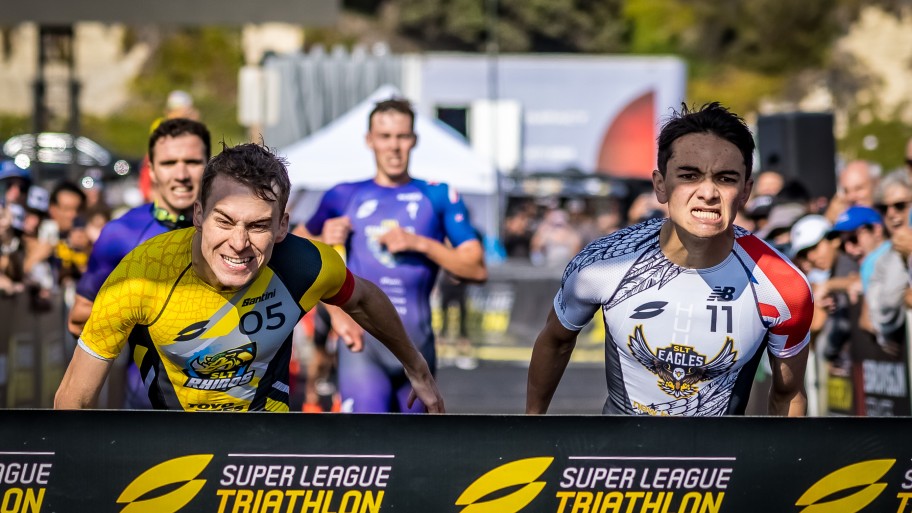
Taper
To recover and reduce your training load before a big race so you aren’t too fatigued when you get on the start line.
Tempo
It can mean slightly different things to different people. Generally, it is an effort that should be comfortably hard or a challenging pace that is sustainable. That is, slower than both race pace and the speed you do hard intervals, but faster than your recovery jaunt.
Time trials
A common phrase in swimming, cycling, and running. In swimming and running this is generally completing a fixed distance as fast as you can. For example, competing a solo 1500m time trial effort in the pool as a measure of how your swimming fitness is progressing. However, in cycling, time trialling is a world of its own – and plenty of triathletes like to dabble in cycling time trials.
Cycling time trials tend to be over fixed distances (10 miles, 25 miles, 50 miles, 100 miles) on set out-and-back courses; but, there are courses with bespoke distances. Some courses are circular or multi-lap, and there are even events over 12 and 24 hours where the aim is to ride as far as you can in the allotted time. Aerodynamics are usually the top priority in time trialling as cyclists race against the clock and try to ride as fast as possible.
‘The Man With The Halo’
Tim Don, a legend of triathlon. Multiple world champion, three-time Olympian, and ‘the man with the halo’. This is the title of a documentary about his battle to recover after an accident in the build up to the Ironman World Championship left him with a broken neck – wearing a ‘halo’ device screwed into his skull to give him the best possible chance of returning to elite sport.
Track session
This is commonly a running phrase and means a running session using a running track – like those you’ll see in an athletics stadium. Track sessions are useful for completing speed sessions in a controlled environment.
TrainingPeaks
A popular online platform used by athletes and coaches to record training and race performance. There are other similar platforms, such as Today’s Plan.
Transition – T1 and T2
Triathlon is a non-stop race, meaning you need to go from swimming to cycling to running. You do this via transitions. There are two transitions in a race: T1 is the exit from the swim and preparing for the bike; T2 is finishing the bike and starting the run.
Normally, T1 and T2 are in the same place/are the same place, meaning this is where your bike is racked and where you swap kit between disciplines; however, some events will have a split transition, which means T1 and T2 are in different places, and importantly your run kit will be in T2 whilst you bike gear will need to start off in T1.
Read our guide to triathlon transitions.
Time trial bike
Triathlon bikes and time trial bikes are both designed to make you as aerodynamic as possible. Their geometry is such that the rider sits further forward over the bike’s bottom bracket.
The bars normally consist of a flat base bar and two long extensions/poles (called tri-bars, aero bars or TT bars). The design and shape of time trial bikes are restricted by the rules imposed by cycling’s governing body (the UCI); whereas, triathlon bikes have no such restrictions, which can result in some radical designs and positions – such as Gustav Iden’s superman position ahead of the 2024 IRONMAN World Championship.
In general, without lots of practice, triathlon bikes and time trial bikes are less comfortable and less nimble than a normal road bike.
Triathlon relays
There are several variations and formats for triathlon relays. Broadly there are three are main structures to a triathlon relay:
(i) A team mate completes one of the disciplines each (one full triathlon, normally with a classic distance, is completed by the team)
(ii) Each team member completes a full triathlon (usually a short triathlon, similar to a super-sprint) before passing onto the next team mate
(iii) The first team mate completes the swim and passes onto the next team mate to complete their swim and so on, this is then repeated for the bike and the run (again, the distances are usually similar to a super-sprint).
Tri shoes
This refers to the shoes you wear when you are cycling during a triathlon. They have the same style sole and cleat design as a cycling shoe. However, they tend to have a wide opening, one-wide strap (rather than a ratchet, wires, or laces), and a hoop on the heel – all designed to help you get your shoes on and off as easily as possible.
Trisuit
This is a piece of clothing which can be worn for the whole triathlon, the swim, the bike, and the run. Most tri-suits have a small insert/pad to make the cycle-leg more comfortable. Often tri-suits are a one-piece either with or without sleeves. However, some people favour a two-piece tri-suit with separate shorts and top.
Check out our tri suit buying guide to learn more!
Race belt
Usually an elastic belt which you attach your bib race number to. Then, rather than having to pin a number to your back and front, you can simply slide the number attached to your race belt from your back to your front when moving from the bike to the run.
Strava
The social app used by many athletes to record and share their training and race performances. “If it’s not on Strava, it didn’t happen.”
Swim skin
Thinner and less buoyant than a wetsuit, a swim skin can be worn over a tri suit for a non-wetsuit swim (that is, when the water is too warm for a wetsuit). They are tight fitting, often with a similar shape to a tri-suit, but are notably quicker through the water than if you were to just wear a tri suit due to their hydrophobic and hydrodynamic properties.
VO2 Max
For a long time considered the best indication of endurance sport prowess, but now acknowledged as just being one of many contributing physiological factors.
VO2 max is the maximum amount of oxygen your body is able to use during exercise. Vo2 max is a relative measurement, it is the maximum volume of oxygen in millilitres which is consumed per kg of body weight per minute (that is, in units of ml/kg/min).
Elite athletes often have a VO2 max north of 70 ml/kg/min.
Watts
The unit of power often referred to when riding a bike. Understanding your watts and power on the bike can be a useful metric when you are training and racing.
Wattbike
A popular stationary bike which offers variable resistance and power data (amongst other metrics).
Wind tunnel
This is something which generates airflow and is used by cyclists to optimise their position on their bike to reduce drag and save watts.
WTCS
The World Triathlon Championship Series – World Triathlon’s top tier of short-course racing.
XTERRA
The main international series of cross triathlon. Rather than road riding and running, XTERRA has off-road mountain biking and trail running disciplines.
Zwift
The popular online training app which allows you to run and cycle in a virtual world. Check out our Zwift section to learn more.

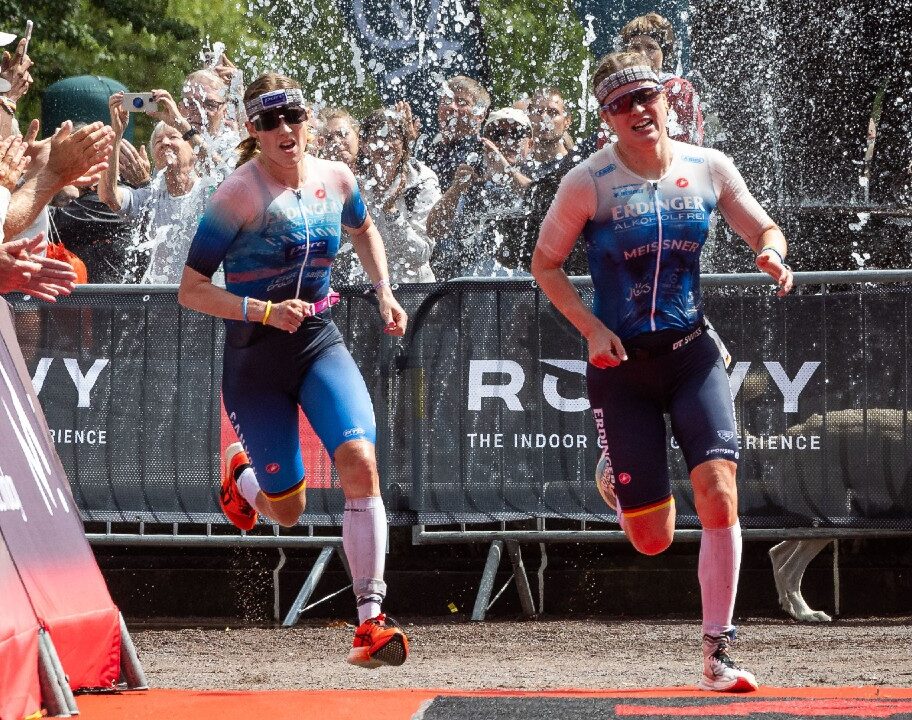
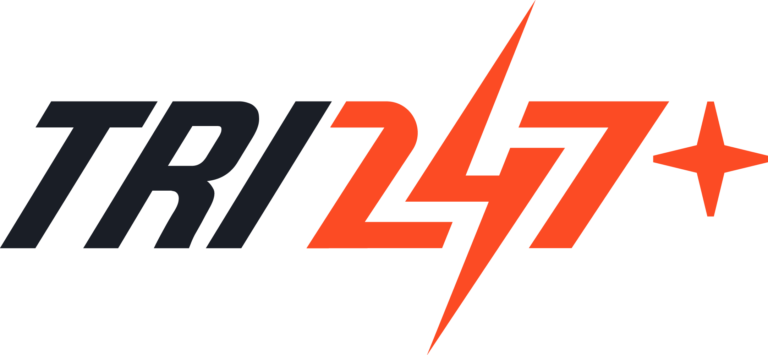 Triathlon’s mid-season report card: Tim Don on who’s raising the bar this triathlon race season
Triathlon’s mid-season report card: Tim Don on who’s raising the bar this triathlon race season